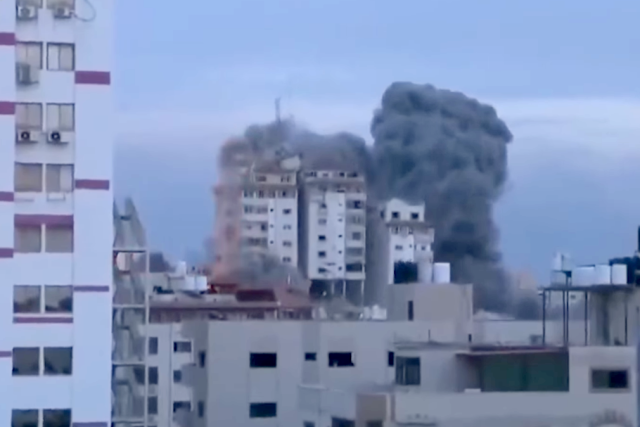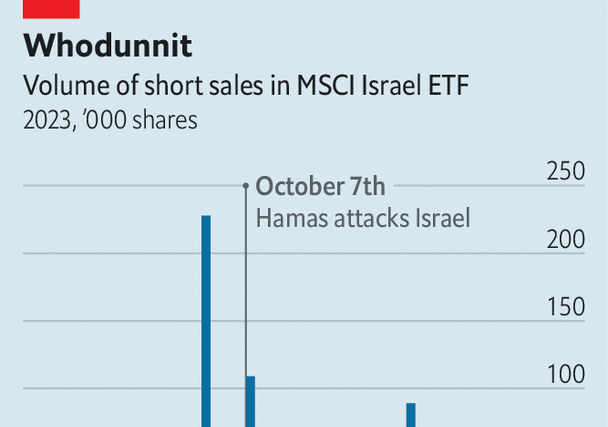Chief Prosecutor of the International Criminal Court (ICC) Karim A.A. Khan concluded his trip to Israel and Palestine on Sunday, issuing a statement stressing the importance of international law. This was the first visit to Israel and Palestine by an ICC prosecutor.Khan made the trip after families of October 7 attack victims asked the ICC to investigate possible war crimes and genocide committed by Hamas against Israeli civilians. Palestinian rights groups, and five countries, filed their own referrals to the ICC saying Israel was committing war crimes and genocide. Khan spoke with the families who requested his visit and toured “scenes of calculated cruelty” in southern Israel. He also met with Palestinian authorities like President Mahmoud Abbas, Prime Minister Mohammad Shtayeh and Minister of Justice Mohammad Shalaldeh.A number of Palestinian rights groups refused to meet with Khan, accusing him of prioritizing Israeli claims over longstanding Palestinian complaints. “As Palestinian human rights organizations, we decided not to meet him,” said Ammar Al-Dwaik, director general of the Independent Commission for Human Rights, Palestine’s national human rights institution. “I think the way this visit has been handled shows that Mr Khan is not handling his work in an independent and professional manner.”Khan expressed outrage about Hamas’s attacks on Israeli civilians, the taking of hostages to Gaza, escalating settler violence in the West Bank, civilian casualties and attacks on civilian infrastructure in Gaza and Gaza’s acute need for humanitarian aid. He said that his office was committed to a thorough investigation of possible crimes under the Rome Statute and that international law should protect everyone. “During this mission,” Khan said, “I had a simple message: my Office is here to ensure that the protection of the law is felt by all.”The ICC prosecutes the most serious international crimes. The Rome Statute is the document that governs the ICC and gives it jurisdiction over cases of war crimes, genocide, crimes against humanity and crimes of aggression. The State of Palestine is a party to the Rome Statute and the ICC; Israel is not.Accusations of war crimes and genocide are at the center of the complaints filed with the ICC. Article 8 of the Rome Statute defines war crimes as violations of the Geneva Conventions or other international law. It lists examples including hostage taking, the targeting of civilians, the targeting of civilian infrastructure and attacking medical or humanitarian facilities and personnel. Article 6 of the Rome Statute, echoing the Convention on the Prevention and Punishment of the Crime of Genocide, defines genocide as any acts committed “with intent to destroy, in whole or in part, a national, ethnical, racial or religious group.” These acts can include:(a) Killing members of the group;(b) Causing serious bodily or mental harm to members of the group;(c) Deliberately inflicting on the group conditions of life calculated to bring about its physical destruction in whole or in part;(d) Imposing measures intended to prevent births within the group; or(e) Forcibly transferring children of the group to another group.International law experts have said that Hamas’s initial attacks killing 1,200 people, mostly civilians, the taking of hostages and rocket attacks targeting civilian areas constitute war crimes. The families that invited Khan also say that the Hamas attacks were an act of genocide. Human rights groups have accused Israel of war crimes over its response, which has killed more than 15,000 people in Gaza—again, mostly civilians. They point to attacks on places like medical facilities and refugee camps, the high number of journalist deaths and restrictions on humanitarian aid, food, water and fuel. Palestinian rights groups and President Mahmoud Abbas contend that Israel’s actions amount to genocide. International law and genocide scholars have expressed similar worries.Khan’s visit comes nearly two months into Israel’s war with Hamas and shortly after a temporary ceasefire that resulted in the release of numerous hostages and an influx of humanitarian aid. With Israel and Hamas returning to hostilities, Khan said adherence to international law should be paramount. He specifically mentioned that Israel “has trained lawyers who advise commanders and a robust system intended to ensure compliance with international humanitarian law,” imploring them to prioritize such compliance. Khan described this visit as only the beginning, saying his office was committed to conducting comprehensive investigations in the region.



The Most Read
Сryptocurrencies
Bitcoin and Altcoins Trading Near Make-or-Break Levels
Financial crimes
Thieves targeted crypto execs and threatened their families in wide-ranging scheme
Financial crimes
Visa Warning: Hackers Ramp Up Card Stealing Attacks At Gas Stations
News
Capitalism is having an identity crisis – but it is still the best system
Uncategorized
The 73-year-old Vietnamese refugee is responsible for bringing Sriracha to American consumers
Uncategorized
Electric Truckmaker Rivian, Backed By Amazon, Ford, Raises Whopping $1.3 Billion